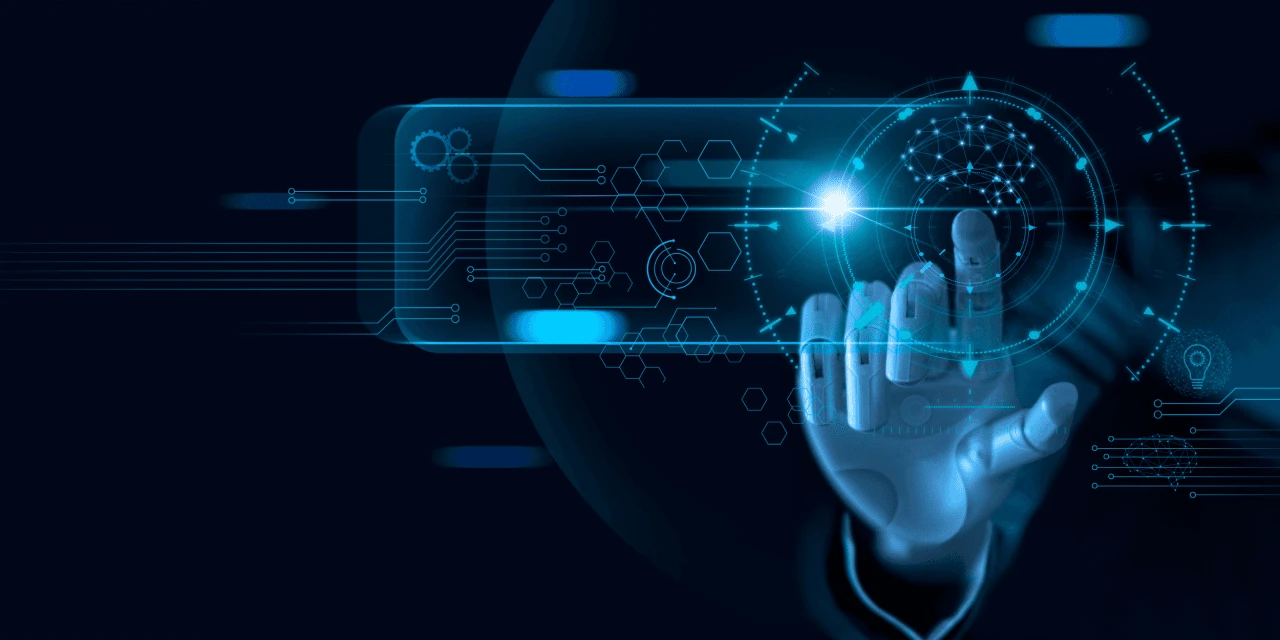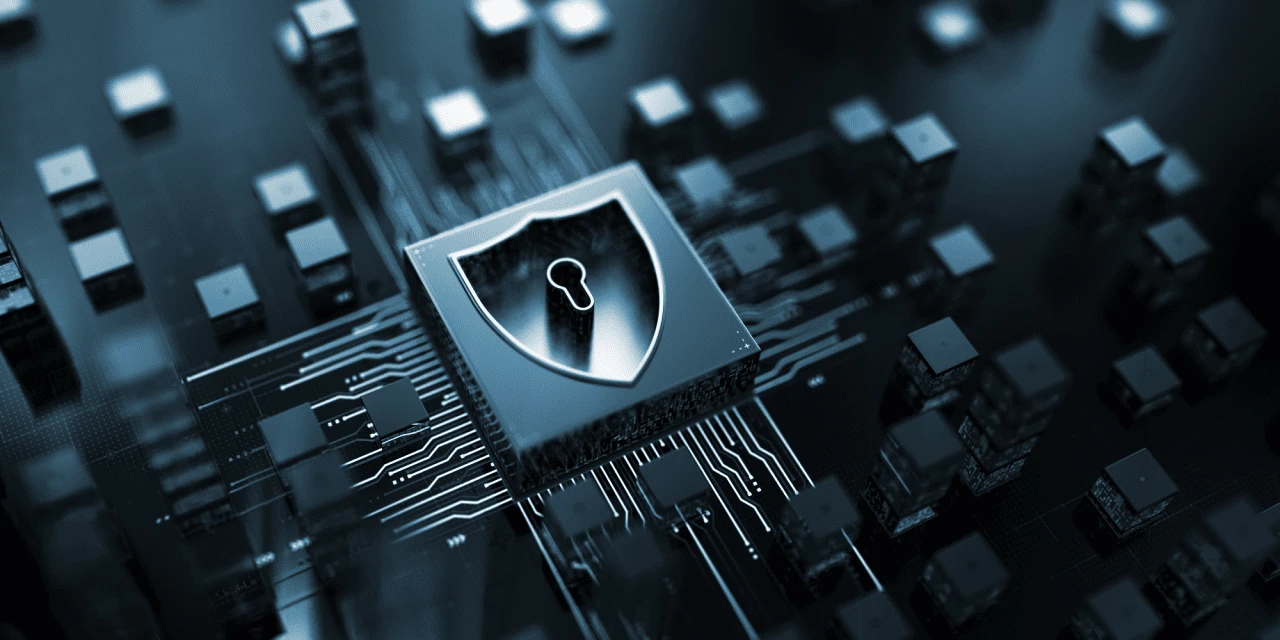Don't miss out on the latest updates.
Fill in your email address to stay informed about upcoming training sessions, events, and testing know-how.
Blog
Today's digital world is changing fast. Businesses face new challenges as threats become more complex and beyond human control. Traditional security measures are not enough anymore. Businesses now have to deal with countless signals, each one a possible weak spot. So, what does this mean?
Cybersecurity has become too complex for humans to handle alone. This is where Artificial Intelligence (AI) and Machine Learning (ML) come in. These technologies are leading the way in improving digital security. They can analyze millions of digital activities and identify potential threats, like new vulnerabilities or unusual behaviors that could lead to phishing attacks.
In this article, we'll look at how AI strengthens digital security, its role in detecting and responding to threats, and how it helps protect sensitive data and systems in our increasingly connected world.

Cybercriminals utilize a range of attack techniques, from phishing and ransomware to zero-day exploits, complicating the security landscape. AI helps by analyzing large amounts of data from various sources to identify patterns and indicators of attacks. Employing machine learning and behavioral analysis, AI-powered security systems continuously adapt and evolve, enhancing the organization's defenses against diverse attack methods.
Modern organizations rely on a myriad of devices, including computers, smartphones, and IoT devices. AI endpoint security solutions provide comprehensive device management and threat detection capabilities. These systems automatically detect vulnerabilities, enforce security policies, and respond to malware and other threats, streamlining device management across the organization.
The growing demand for cybersecurity expertise has led to a shortage of skilled professionals, making it challenging to effectively monitor security systems and respond to cyber threats. AI-driven security automation tools augment the capabilities of existing cybersecurity teams by automating repetitive tasks like threat detection, incident response, and vulnerability management. This technology bridges the gap between the demand for expertise and the shortage of skilled professionals, enabling organizations to optimize their resources and focus staff on higher-value tasks.
The proliferation of internet-connected devices has significantly widened the attack surface, offering cybercriminals more opportunities to find and exploit vulnerabilities. AI-driven threat detection systems counter this by continuously monitoring network traffic and endpoints.
Advanced analytics and anomaly detection algorithms allow AI-powered security systems to efficiently sift through massive data volumes, identifying and prioritizing security events to enable more effective threat detection and response.

AI has become an essential tool in combating cyber threats, enabling faster detection, analysis, and response to malicious activities. Here’s how AI is simplifying cybersecurity:
AI-driven cybersecurity systems offer more precise and efficient operations than traditional methods. Additionally, its ability to recognize complex patterns allows for more accurate threat detection.
AI significantly improves efficiency in managing repetitive tasks, such as setting up endpoint security across an organization’s devices. Manual configurations are time-intensive and prone to errors. AI and machine learning adapt quickly to new information and evolving threats, streamlining processes and maintaining a consistent and strong defense.
AI improves understanding of network behaviors and accelerates the identification of potential threats. By analyzing large data volumes, AI systems quickly pinpoint abnormal activities and detect new types of malicious attacks, like zero-day threats. AI also streamlines security processes such as patch management, making it easier to maintain cybersecurity.
AI automates routine security tasks, freeing up resources for other business needs. It processes and analyses data swiftly, reducing response times to security incidents and cutting costs associated with cyber defense. AI-driven tools also correlate data to proactively identify malicious activities, scaling up protection without significant investments in hardware or personnel.
Human error significantly contributes to cybersecurity vulnerabilities. AI tools help manage complex and evolving security configurations more effectively.
The proliferation of security alerts can overwhelm IT teams, leading to decision fatigue. AI can manage and prioritize threats more efficiently, reducing the burden on human teams. Automated systems label and handle threats, sometimes resolving them directly through machine learning algorithms, easing the workload and helping teams focus on critical issues.
An increasing number of businesses are adopting AI-driven cybersecurity tools to strengthen their data protection strategies. About 59 % of companies are actively using AI and machine learning for network security risk assessment and scoring. Leading organizations like IBM and Premium Waters Inc., along with industry giants such as Tesla, Shopify, and Adobe, place their trust in these robust cybersecurity solutions. This trend underscores the growing reliance on advanced AI technologies to bolster digital defenses across diverse industries.
These tools not only offer innovative solutions to safeguard digital assets but also ensure that businesses can maintain continuity in the face of ever-evolving cyber risks.
Vectra AI provides AI-driven platform designed for detecting, investigating, and responding to hybrid attacks. As the foundational signal for XDR, the Vectra AI Platform offers coverage across multiple attack surfaces such as identity, public cloud, SaaS, and data center networks.
FortiAI enhances cybersecurity operations with its ability to automate complex tasks using simple natural language, enabling analysts to generate reports, execute data queries, and create playbooks efficiently.
Cybereason is designed to automatically identify malicious activities and present them clearly and intuitively. It deploys seamlessly, causing minimal disruption to existing operations, and delivers comprehensive context for understanding the scope and method of attack campaigns.
Darktrace offers an AI-driven cybersecurity tool that autonomously responds to threats in real time, ensuring minimal disruption to business operations. It protects across all digital environments – cloud, SaaS, email, and corporate networks – by precisely neutralizing threats and enhancing cyber resilience over time through its self-learning capabilities.
Utilizing AI, their platform swiftly adapts to new threats, offering real-time protection and automating responses to secure organizational assets against complex cyberattacks.
AI in cybersecurity isn't just the future; it's the present. As digital threats grow more sophisticated and pervasive, traditional human-operated systems are struggling to keep up. This is where AI steps in, bringing speed, efficiency, and a higher level of accuracy to cybersecurity strategies.
By harnessing the power of AI, organizations can not only anticipate and mitigate cyber threats more effectively but also achieve a more dynamic and robust defense mechanism that evolves with the digital age. This integration marks a pivotal shift in how businesses approach cybersecurity, moving from reactive to proactive and predictive strategies. AI is not just enhancing cybersecurity; it is redefining it, making it smarter, faster, and more adaptable to future challenges.
Join our Tesena Fest 2024 workshops:
CyberGuardians: A Beginner's Guide to Defense and Offense in the Digital Realm, led by Marina Mulyukina. Learn core principles of digital defense, hacker tactics, and hands-on exercises in security testing, port scanning, and attack simulations.
Boosting Personal Productivity with AI, led by David Sedláček. Discover practical applications of AI in Quality Assurance (QA) through interactive exercises, optimizing test plans, and generating test cases efficiently.
Don't miss out on the latest updates.
Fill in your email address to stay informed about upcoming training sessions, events, and testing know-how.
Need Advice?
Request our free, non-sales consultation. Fill out the form and we will get back to you.
Watchdog
Did not find a date that works for you? ....
Notice